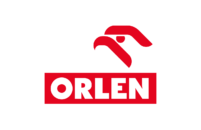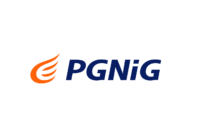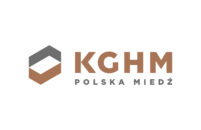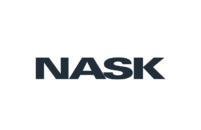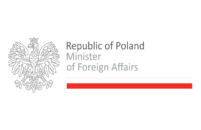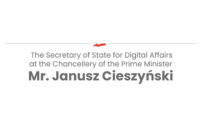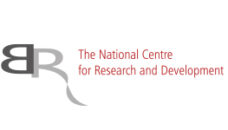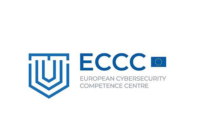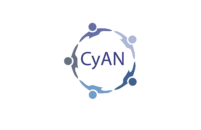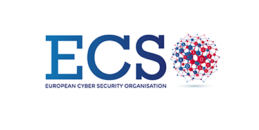Agenda

This edition’s topics include:
-
 Accelerated geopolitical tensions impacting cyberspace
Accelerated geopolitical tensions impacting cyberspace -
 Transatlantic cyber and tech cooperation
Transatlantic cyber and tech cooperation -
 NATO cyberdefence strategy and related technological challenges
NATO cyberdefence strategy and related technological challenges -
 EU regulatory framework with the NIS2 Directive on the horizon
EU regulatory framework with the NIS2 Directive on the horizon -
 Global cooperation against the spread of cyber weapons and “ransomware as a service”
Global cooperation against the spread of cyber weapons and “ransomware as a service”
5 Thematic Streams

STATE STREAM
Strong and resilient economy requires the highest possible level of security of its systems. This is particularly important in the transatlantic context, given both the intensity of the economic cooperation and the strategic security of both the European Union and the United States within NATO. The EU and the US, however, have slightly different approaches to cybersecurity, and discrepancies in their regulatory ecosystems are often seen as obstacles for companies entering and operating on the other side of the Atlantic. How compatible should these two cybersecurity regimes be? Is there an added value in greater synergy between them or perhaps one can learn from the other?

FUTURE STREAM
“Cyberweapons”, which are used in most advanced cyber operations significantly decrease the global level of cybersecurity, threatening government institutions, businesses and individual users alike, especially as backdoors and other tools created for intelligence agencies could also be found and exploited by third actors, such as cyber criminals or terrorist groups, as was the case of the 2017 WannaCry attack. The threats of proliferation of cyberweapons will fundamentally challenge individuals and organizations, both private and public, thus undermining global economy. How can public-private partnerships limit this risk? Is it possible to “deweaponize” cyberspace, by securing the previous generations of digital technologies and installing innovative secure solutions into new emerging and disruptive technologies in a systemic way?

BUSINESS STREAM
Technology has been taken hostage by geopolitical shifts and strategic competition, used by states across the world as key building blocks of their soft, hard and smart power. This remains true also in relation to hardware, and in particular – micro-chips. Semiconductors not only form the heart of global digital economy but also are essential to maintaining technological edge. China’s ambitious strategy to become the world’s technological leader, will not only put pressure on other states but also create wide geopolitical consequences affecting the global balance of power. As semiconductors play a key role in supply chain security both the EU and the US are taking steps to further strengthen their domestic capacities, and attempt at building a strategic partnership. Can the TTC lead to a common approach and cooperation among other like-minded countries?

DEFENCE STREAM
To keep up with the constantly evolving cyber threat landscape NATO adopted Comprehensive Cyber Defence Policy, requiring cybersecurity plans to address not only traditional challenges within the domain, but also to look to new ways in which cyberwarfare can be combined by the threat actors with other means, as well as existing and future socio-technological systems to establish strategic advantage or prevail in conflict. The so-called Emerging and Disruptive Technologies (EDTs), such as Artificial Intelligence or Big Data Analytics, present a major challenge in this context. NATO is preparing for the arrival of a new kind of threats and moving towards innovation through the civil-military Defence Innovation Accelerator for the North Atlantic (DIANA) and the Innovation Fund. How can NATO use this as an opportunity to boost cyber innovation for EDTs solutions and applications?

GLOBAL CYBER FORESIGHT
Special event – official launch of the declaration of think tanks
AGENDA TOWARDS VALUES-BASED DIGITAL WORLD
The Kosciuszko Institute has for many years supported processes contributing to a safe, inclusive and fair cyberspace. That is why this year, taking advantage of the Internet Governance Forum 2021 event in Poland, we decided to issue this document called “Agenda Towards Values-Based Digital World”, to which we invited leading NGO organizations from around the world to cooperate upon. As think tanks, we are committed to actively participate in shaping political and social landscapes through our advice, expertise, and research. Through this global alliance of like-minded entities, we want to advocate for a more human-centric, ethical, and values-based digital world. Our goal is to use our voices to not only highlight that indeed we should strive for a digital environment that respects human rights and commonly shared values, but also to offer tangible steps and recommendations that other entities should follow as well.












